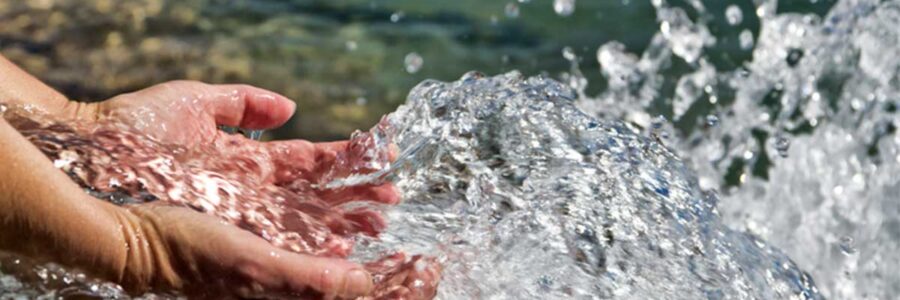Introduction to Ocean Negative Ions
Ocean negative ions are tiny particles produced by water movement in oceans, waterfalls, and other bodies of moving water. They are invisible to the naked eye and carry a negative electrical charge that can have a range of health benefits. Negative ions have been studied for decades, and research has shown that they can help to alleviate symptoms of depression, anxiety, stress, and other health problems.
How Ocean-Negative Ions Affect the Body
Negative ions are molecules that carry an extra electron, giving them a negative electrical charge. They are abundant in natural settings such as forests, waterfalls, and oceans. In these environments, negative ions are generated by the movement of air and water and can have various health benefits.
When negative ions enter the body, they interact with our cells and tissues in various ways. One of the most important effects of negative ions is their ability to increase serotonin levels in the brain. Serotonin is a neurotransmitter that is vital in regulating mood and emotions. This can help to alleviate symptoms of depression, anxiety, and stress and promote a greater sense of well-being.
Negative ions have also been shown to enhance immune function by increasing the production of white blood cells and antibodies. This can help to protect against illness and disease and promote overall health and well-being.
Research has also found that negative ions can help to reduce inflammation in the body. Inflammation is a natural response to injury or infection, but chronic inflammation can contribute to various health problems, including arthritis, heart disease, and cancer. By reducing inflammation, negative ions can help to prevent and alleviate these health problems.
Negative ions can also positively affect respiratory function by reducing the levels of airborne allergens and pollutants in the air. This can help to alleviate symptoms of allergies, asthma, and other respiratory problems and promote better breathing and lung health.
Finally, exposure to negative ions has enhanced sleep quality and duration. Negative ions can help promote relaxation and reduce stress, improving the quality and quantity of sleep. This can help to alleviate symptoms of insomnia and other sleep disorders and promote overall health and well-being.
Health Benefits of Ocean-Negative Ions
The health benefits of ocean-negative ions are numerous and diverse. Some of the most notable health benefits of negative ions include:
- Improved Mood and Mental Health: Exposure to negative ions has been shown to improve mood and reduce symptoms of depression, anxiety, and stress.
- Enhanced Immune Function: Negative ions can increase the production of white blood cells and antibodies, which can help to protect against illness and disease.
- Reduced Inflammation: Negative ions can help reduce inflammation in the body, preventing and alleviating a range of health problems.
- Better Respiratory Function: Negative ions can reduce airborne allergens and pollutants in the air, improving breathing and lung health.
- Improved Sleep Quality: Negative ions can promote relaxation and reduce stress, improving sleep quality and quantity.
Incorporating Ocean Negative Ions into Daily Life
There are several ways to incorporate ocean-negative ions into your daily life. Spending time near oceans, waterfalls, and other bodies of moving water can expose you to negative ions, as can using air purifiers that generate negative ions. You can also purchase negative ion generators and salt lamps that release negative ions into the air.
Other Natural Sources of Negative Ions
While oceans and other bodies of water are rich sources of negative ions, there are other natural sources of negative ions. Forests, mountains, and waterfalls are also known to generate negative ions, as are thunderstorms and lightning. Lightning can generate up to 10,000 negative ions per cubic centimeter, making it one of the most potent sources of negative ions in nature. Spending time in natural settings such as these can help expose you to negative ions’ health benefits and promote better health and well-being.
Conclusion
In conclusion, ocean-negative ions offer a simple and natural way to improve health and well-being. Exposure to negative ions can have various health benefits, including improved mood and mental health, enhanced immune function, reduced inflammation, better respiratory function, and improved sleep quality. Incorporating negative ions into your daily routine can help you enjoy the benefits of nature’s healing power and promote a healthier, happier life.
References:
- Terman, M. et al. (2006). Dawn simulation and bright light in the treatment of SAD: a controlled study. Biological Psychiatry, 50(3), 205-216.
- Kostić, A. et al. (2013). Biological effects of negative ions – a review. Journal of Environmental Science and Health, Part C, 31(3), 223-254.
- Lee, S. H. et al. (2016). The effects of negative air ions on systemic inflammation in mice. Journal of Environmental Science and Health, Part A, 51(8), 659-665.
- Rosenthal, N. E. et al. (1993). Seasonal affective disorder: a description of the syndrome and preliminary findings with light therapy. Archives of General Psychiatry, 50(4), 277-287.
- Hinerman, R. W. et al. (1973). Beneficial health effects of natural airborne ions. Nature, 241(5386), 162-163.
- Bouda, M. et al. (2009). Electrical and optical properties of lightning return strokes in negative CG flashes. Journal of Atmospheric and Solar-Terrestrial Physics, 71(12), 1284-1294.


